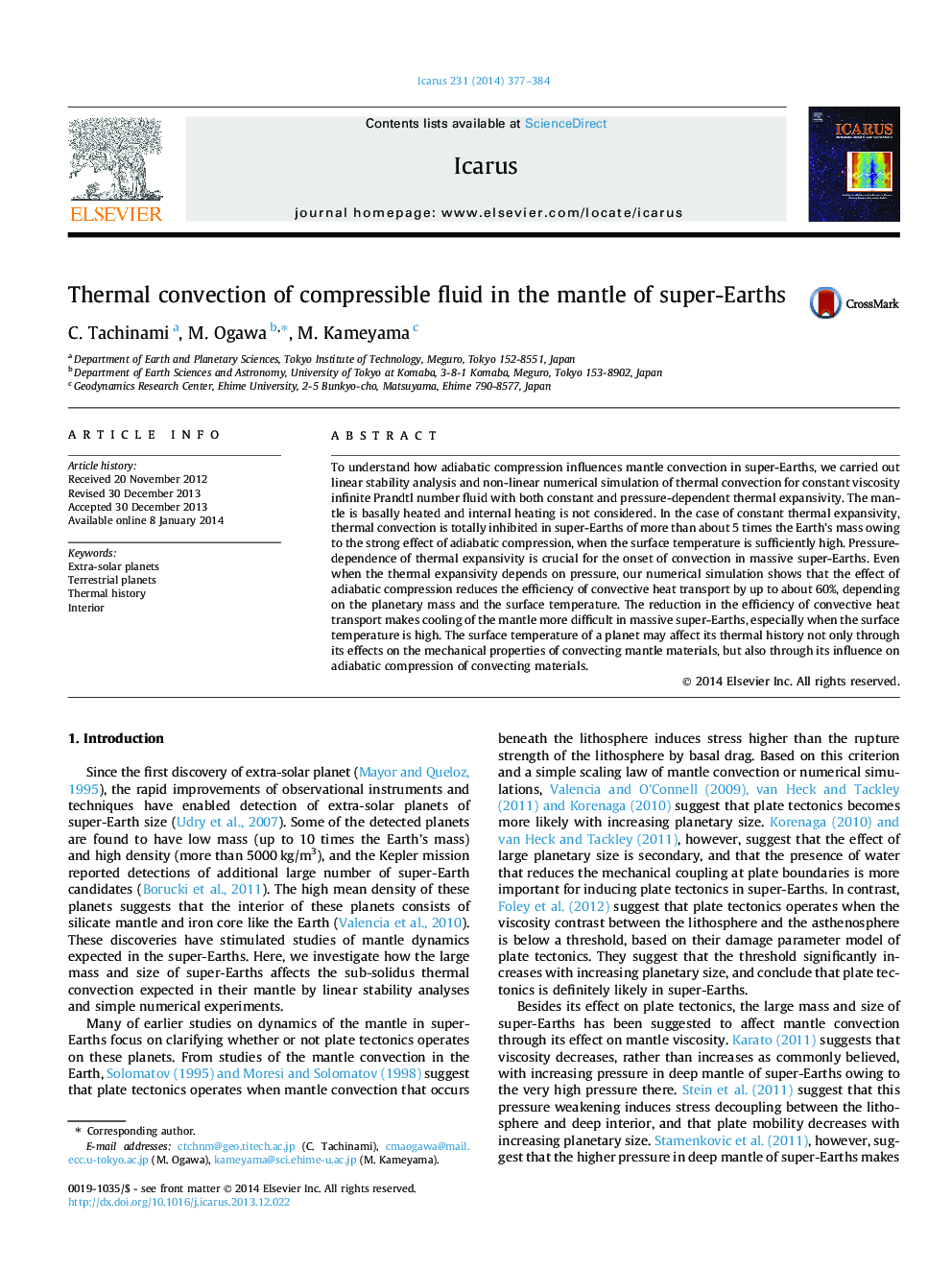| Article ID | Journal | Published Year | Pages | File Type |
|---|---|---|---|---|
| 8138685 | Icarus | 2014 | 8 Pages |
Abstract
To understand how adiabatic compression influences mantle convection in super-Earths, we carried out linear stability analysis and non-linear numerical simulation of thermal convection for constant viscosity infinite Prandtl number fluid with both constant and pressure-dependent thermal expansivity. The mantle is basally heated and internal heating is not considered. In the case of constant thermal expansivity, thermal convection is totally inhibited in super-Earths of more than about 5 times the Earth's mass owing to the strong effect of adiabatic compression, when the surface temperature is sufficiently high. Pressure-dependence of thermal expansivity is crucial for the onset of convection in massive super-Earths. Even when the thermal expansivity depends on pressure, our numerical simulation shows that the effect of adiabatic compression reduces the efficiency of convective heat transport by up to about 60%, depending on the planetary mass and the surface temperature. The reduction in the efficiency of convective heat transport makes cooling of the mantle more difficult in massive super-Earths, especially when the surface temperature is high. The surface temperature of a planet may affect its thermal history not only through its effects on the mechanical properties of convecting mantle materials, but also through its influence on adiabatic compression of convecting materials.
Related Topics
Physical Sciences and Engineering
Earth and Planetary Sciences
Space and Planetary Science
Authors
C. Tachinami, M. Ogawa, M. Kameyama,
